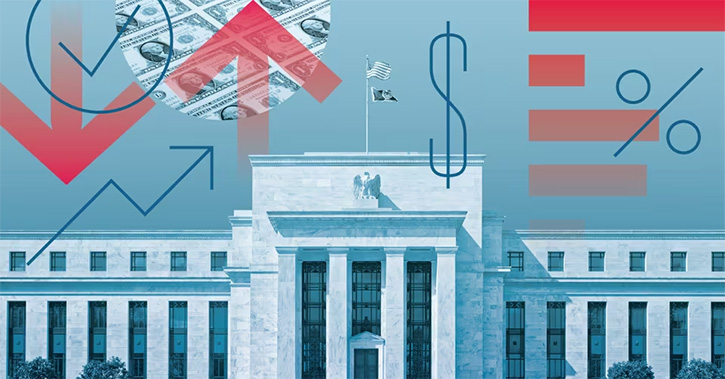Morningstar's "Perspectives" series features investment insights from third-party contributors. Here, Keith Wade, Chief Economist at Schroders, comments on the September Federal Open Market Committee meeting minutes released yesterday.
The minutes of the September Federal Open Market Committee meeting took a more dovish turn than markets had expected with the committee citing weakness in the rest of the world and the strength of the US dollar as a concern.
Although the committee closely monitors external factors, in the previous meeting they had not been seen as materially affecting monetary policy goals such as the 2% inflation target. The persistent shortfall in eurozone growth and inflation is clearly the most important factor, but the minutes also mentioned that slower economic growth in China or Japan, or geopolitical events in the Middle East or Ukraine could also pose a downside risk to activity. When combined with comments on the need to maintain a “considerable period” between the end of quantitative easing and the start of rate rises, interest rate expectations have fallen back in the US.
To paraphrase, no economy is an island, but the mention of the dollar comes as a surprise as in the past its role in US monetary policy has been downplayed. The US economy is relatively closed (imports are around 15% of GDP, exports slightly less) and with commodities priced in dollars the inflationary or deflationary impact of moves in the currency can be muted.
Nonetheless, there is an important effect that we monitor through the impact on import prices (excluding oil). At the last reading, import prices on this measure were still rising year-on-year in August, but clearly the upswing in the dollar is set to send us in a more deflationary direction in coming months. This will weigh on CPI inflation, which may stay the Federal Reserve’s hand when it comes to tightening policy.
However, at this point we would note that any deflationary pressure from this source is limited compared to the last two recessions, or the Asia crisis of the late 1990s. During those periods import prices were really deflationary, falling 5-6% following an appreciation of the dollar of 10% or more. The latest move in the dollar is a blip in comparison. So is this just another sign of a dovish US central bank looking for reasons not to raise interest rates? Possibly, or perhaps they see a significant risk of the dollar moving much higher and doing their job for them.
Disclaimer
The views contained herein are those of the author(s) and not necessarily those of Morningstar. If you are interested in Morningstar featuring your content on our website, please email submissions to UKEditorial@morningstar.com.




























